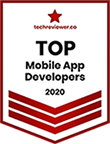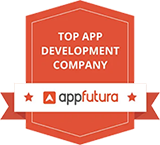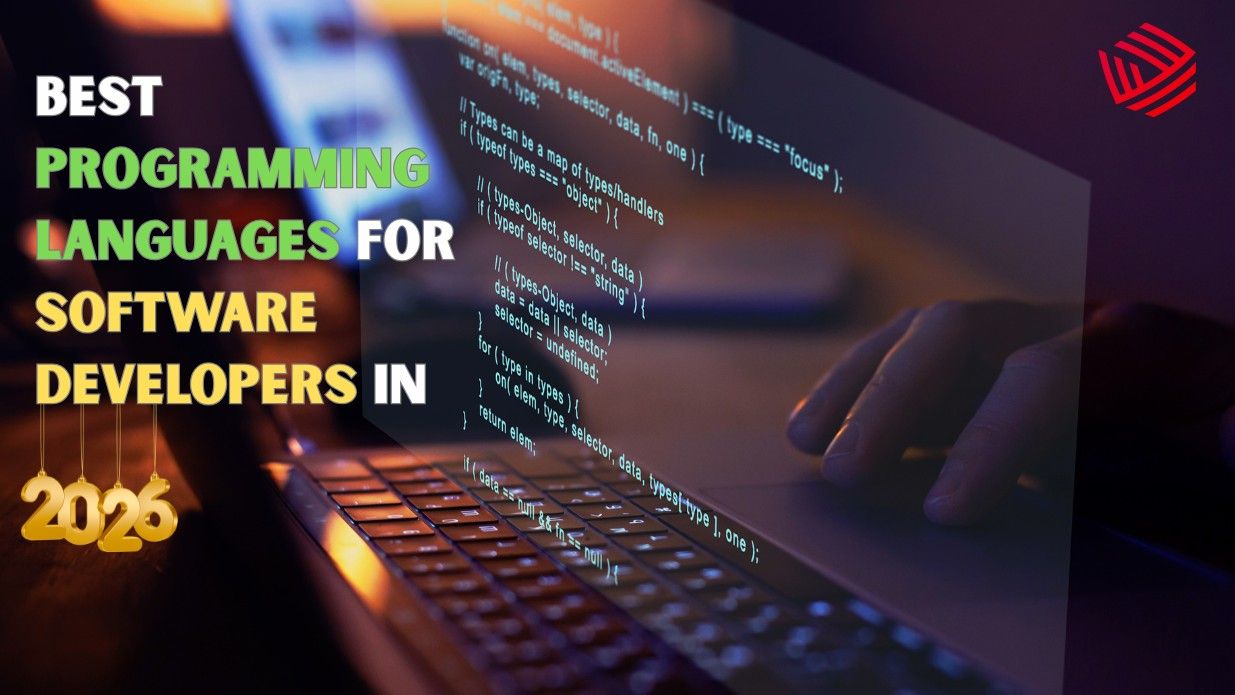
Best Programming Languages for Software Developers in 2026
This guide explores the most relevant programming languages for software developers in 2026, based on real-world use, career stability, and practical problem-solving—not hype or trends.
Transparent delivery logs
NDA & IP secured
Swift onboarding
Hassle-free replacement
Flexible work modes
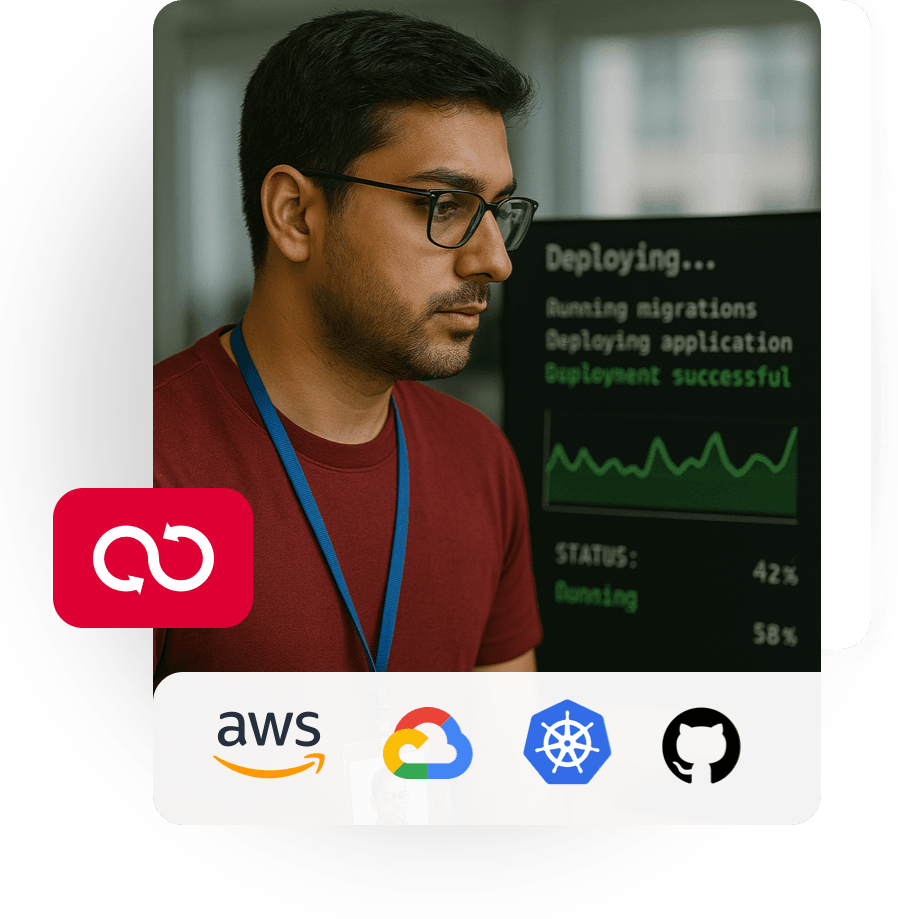
Accelerate your Development operations by leveraging our expert DevOps engineers, who utilize IaC tools like Terraform and Ansible to deliver automated, scalable, and version-controlled infrastructure deployments.
Use our skilled DevOps engineers to speed up your development processes. They use IaC tools like Terraform and Ansible to provide version-controlled, automated, and scalable infrastructure deployments.
Boost business growth by leveraging the right cloud platforms and services such as PaaS, BaaS, and IaaS - guided by our skilled cloud DevOps engineers.
End to End Automation
High Availability & Reliability
Faster Software Delivery
Security First DevOps
Optimized Cloud Costs
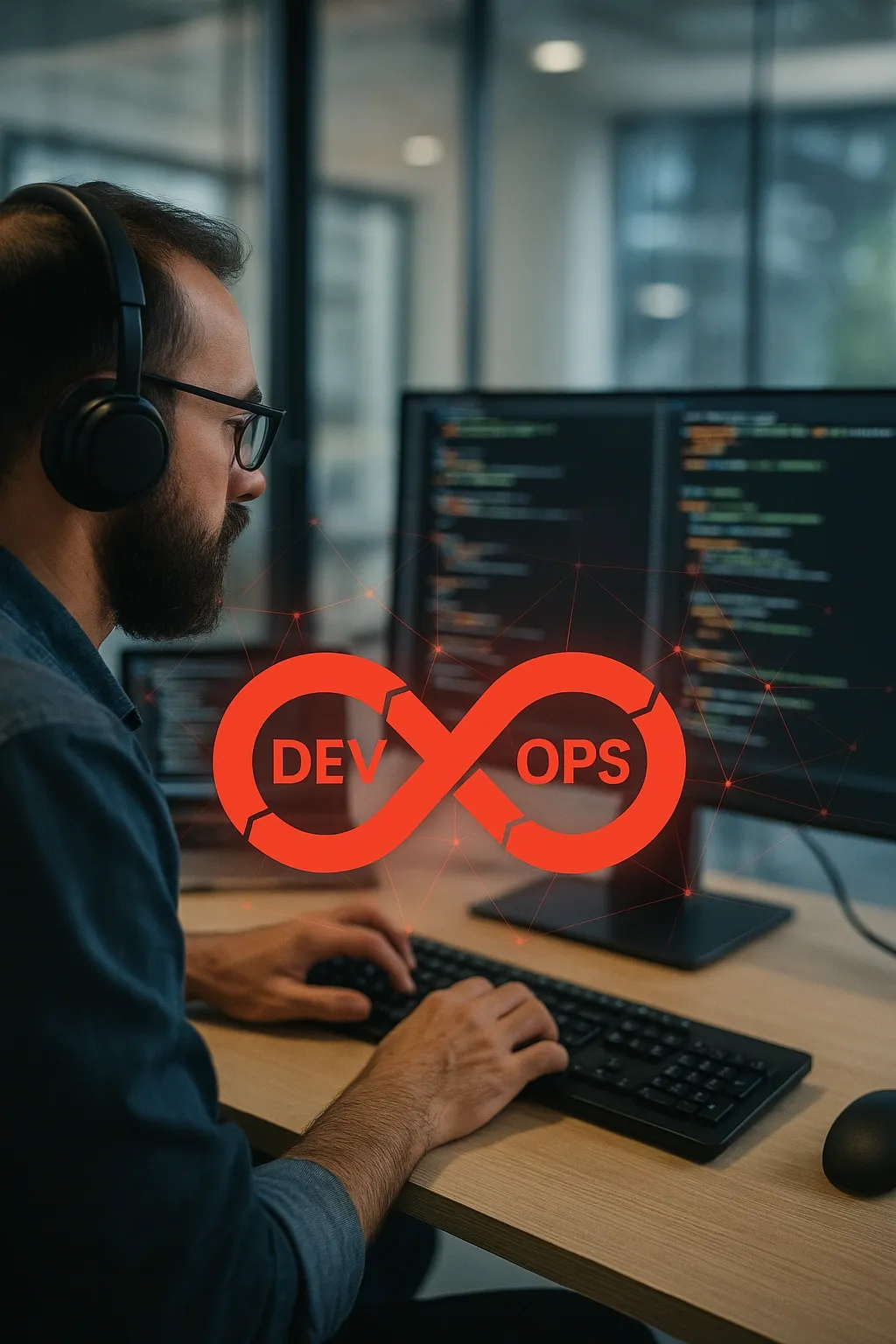
We offer DevOps expertise in diverse tech stacks, from cloud platforms to CI/CD tools, enabling efficient and scalable deployments according to your business requirements.
The team delivered high-quality work that met our expectations in terms of design and functionality.
Join Dappinity to work at the forefront of digital innovation, collaborating with top-tier tech talent on meaningful projects for global clients. We offer a flexible, remote-friendly work environment, competitive compensation, and clear career growth opportunities. At Dappinity, you’ll enjoy continuous learning, mentorship, and recognition in a collaborative, inclusive culture that values creativity, impact, and professional development. Elevate your career while shaping future-ready solutions with us.
Dappinity provides expert DevOps Engineers offering scalable, innovative, and client-focused solutions while ensuring high quality and timely project delivery.
The dedicated DevOps Engineers team at Dappinity delivers innovative, scalable, and secure solutions, ensuring seamless collaboration and future ready applications.

Tell us what you need - tech stack, experience, timelines.

We send you pre-screened developers matched to your needs.

You interview. You decide. Start in as little as 72 hours.

Easily scale up or down. We stay flexible as you grow.
DevOps is a cultural and technical movement combining software development (Dev) and IT operations (Ops) to shorten the improvement lifecycle while maintaining a pleasant, high-quality software program. It emphasizes collaboration, automation, continuous remarks, and incremental enhancements. DevOps objectives to break down silos among development and operations teams, encouraging shared obligations and quicker deployments.
Key principles encompass non-stop integration, non-stop transport, infrastructure as code, and automated checking out. DevOps isn't just about equipment—it is also about mindset, lifestyle, and conversation. Understanding the foundational ideas allows you to navigate the device ecosystem and align DevOps practices with commercial enterprise desires for faster, more efficient product shipping.
Version control is the backbone of DevOps. Tools like Git allow teams to track changes, collaborate on code, and revert to earlier versions when needed. GitHub and GitLab enhance Git with features like code reviews, issue tracking, CI/CD pipelines, and team collaboration. As a DevOps engineer, you must master Git commands like clone, commit, branch, merge, and rebase.
You'll also need to understand how to handle merge conflicts, manage repositories, and automate workflows using GitHub Actions or GitLab CI. Version control ensures code consistency, traceability, and collaboration across teams working on complex systems.
CI/CD is at the heart of DevOps. Continuous Integration (CI) includes robotically testing and integrating code modifications right into a shared repository. Continuous Delivery (CD) takes it similarly by deploying those adjustments to production or staging environments. Tools like Jenkins, GitHub Actions, GitLab CI, CircleCI, and Travis CI help automate this procedure. You’ll learn to write pipelines that compile code, run unit tests, install builds, and notify teams.
Proper CI/CD setup reduces human error, speeds up launch cycles, and guarantees that software is usually in a deployable state. It’s an ought-to-have for any team aiming for agile improvement and frequent releases.
Configuration control guarantees that servers and infrastructure are provisioned and maintained continuously throughout environments. Tools like Ansible, Puppet, and Chef can help you automate the setup and configuration of structures, casting off guide, error-prone approaches. Ansible is agentless and makes use of YAML playbooks, making it smooth to adopt. Puppet and Chef comply with declarative fashions and help larger infrastructures.
This equipment assists in controlling the entirety from putting in software programs and handling offerings to imposing protection rules and ensuring device consistency. Configuration management is essential for scaling infrastructure, especially in massive or dynamic environments like cloud-based structures.
Containers permit applications to run reliably throughout one-of-a-kind environments with the aid of packaging them with their dependencies. Docker is the maximum widely used containerization platform, while Podman is a daemonless alternative. You'll learn to write Dockerfiles, build images, run containers, and manipulate box registries. Containers are lightweight, fast to deploy, and consistent throughout development, testing, and production.
They are perfect for microservices architecture and are the inspiration for Kubernetes-based orchestration. DevOps engineers must understand box networking, volumes, and image optimization. Mastering boxes substantially improves software portability, scalability, and isolation—making your systems extra resilient and modular.
Kubernetes is the leading container orchestration platform used to automate deployment, scaling, and management of containerized programs. It permits you to run and manage bins throughout clusters of machines efficiently. You’ll learn how to outline sources with YAML, manage pods, services, and deployments, and scale packages easily.
Kubernetes additionally supports secrets and techniques management, rolling updates, health tests, and self-recuperation via replicas and probes. Tools like Helm (for package deal management) and Prometheus (for tracking) are critical in a DevOps engineer’s toolkit. Kubernetes is complex, however gives unrivaled strength in dealing with cloud-local infrastructure and scaling applications automatically.
Infrastructure as Code allows you to manage infrastructure through code in preference to manual procedures. Terraform is a leading IaC tool that helps you to outline cloud assets (like VMs, networks, databases) using configuration files. It helps multiple cloud companies like AWS, Azure, and Google Cloud.
You’ll learn how to write.Tf files, control state files, use modules for reusability, and put into effect CI/CD for infrastructure provisioning. IaC guarantees repeatability, version manipulate, and simpler rollback in case of screw ups. For DevOps engineers, Terraform reduces human mistakes, allows fast deployment, and aligns infrastructure with application lifecycle workflows.
Continuous tracking is crucial to maintain gadget fitness and performance. DevOps engineers should enforce robust logging, alerting, and monitoring practices using tools like Prometheus, Grafana, ELK Stack (Elasticsearch, Logstash, Kibana), and Datadog. You’ll learn to install dashboards, analyze logs, track gadget metrics, and set indicators for anomalies or disasters.
Monitoring facilitates stumbling on and clearing up troubles proactively, while logging ensures traceability and auditability. Combined, they improve imply time to healing (MTTR), gadget reliability, and customer satisfaction. This equipment offers the visibility needed to apprehend device conduct in real time and make fact-driven decisions for non-stop development.
Engage Dappinity for DevOps solutions, and streamline your infrastructure with our expert DevOps engineers.
 Transparency
Transparency Strict Privacy Assurance with NDA
Strict Privacy Assurance with NDA Talented Team of Developers
Talented Team of Developers 12 Months Free Support
12 Months Free Support Smooth Collaboration & Reporting
Smooth Collaboration & Reporting On time Delivery, No Surprises
On time Delivery, No Surprises Efficient & Adaptive Workflow
Efficient & Adaptive WorkflowWhen hiring a DevOps engineer, focus on their experience with CI/CD pipelines, cloud platforms, infrastructure as code (IaC), automation tools, and security best practices. Solid problem-solving abilities and a collaborative mindset are just as important.
DevOps engineers help streamline your development lifecycle, accelerate release timelines, improve system reliability, automate key workflows, and ensure cost-effective, secure cloud operations.
Our DevOps engineers bring 3 to 10+ years of hands-on experience in cloud computing, automation, infrastructure management, and security. They specialize in tools and platforms like AWS, Azure, Kubernetes, Terraform, and more.
Timelines vary based on your infrastructure and team setup. After a quick assessment, our engineers roll out DevOps strategies efficiently - minimizing disruption while maximizing automation and performance.
It’s simple: Tell us what you need, choose a hiring model, review handpicked candidates, and onboard the right-fit engineer for your team - fast and hassle free.
We offer flexible options - full-time, part-time, or project-based - so you can hire DevOps talent that fits your business goals and project demands.
You can onboard a DevOps engineer in just a few days - depending on your specific requirements and preferred tech stack.





